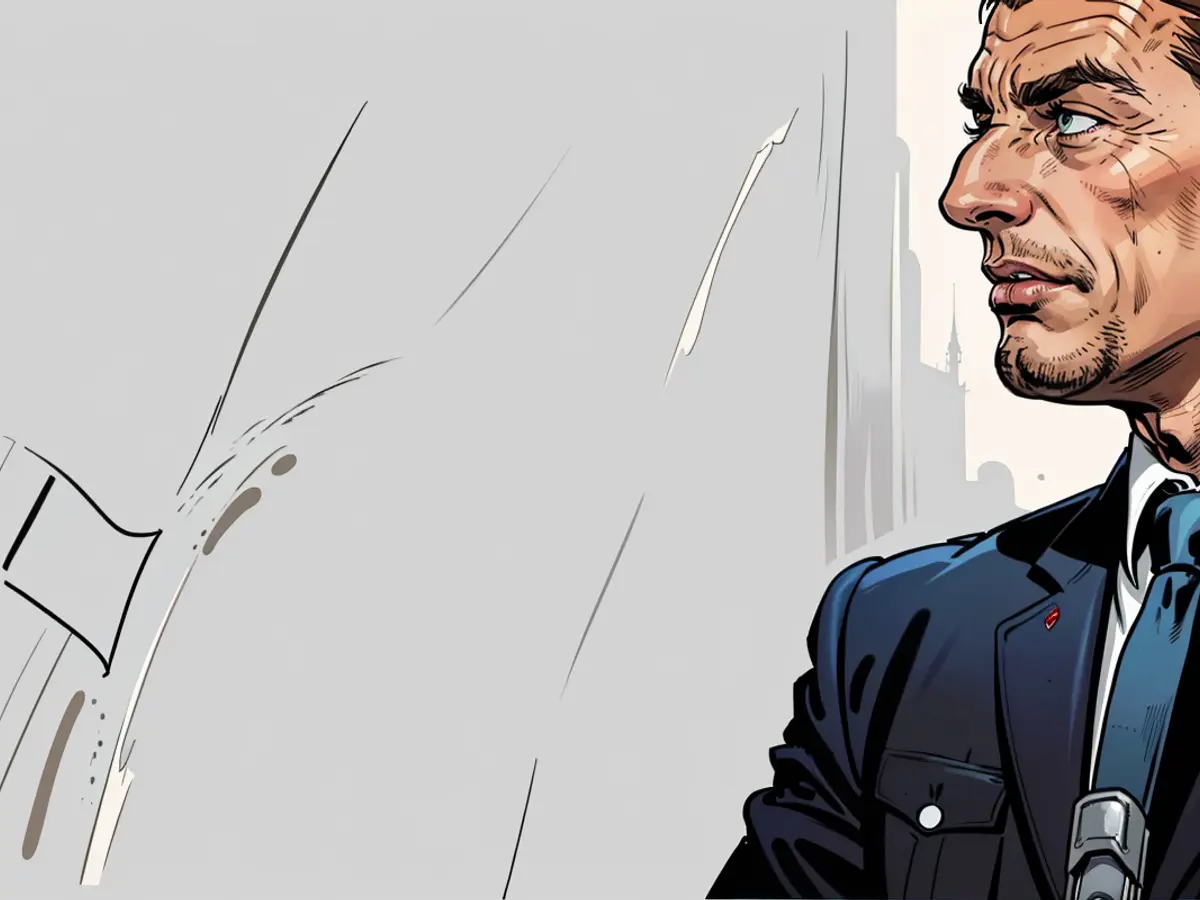Macron calls for formation of a broad coalition in France
"No political force comes to power on its own with a sufficient majority, and the blocks or coalitions that emerge from these elections are all in the minority," states a letter published in regional newspapers. Only the "republican forces" might have had an absolute majority. The election results indicate a "clear will for change and more participation in power," acknowledged Macron.
The President called on "all political forces that recognize the republican institutions, the rule of law (...), and a pro-European position" to engage in dialogue to find a majority. The French have decided for a "republican front," Macron stressed.
The "republican front" in France previously referred to left and right forces joining together to prevent the victory of right-wing populists - through tactical withdrawals of candidates. "I will make my decision on the appointment of the Prime Minister based on these principles," Macron wrote. This decision would be made if the parties found "compromises." He would give them "little time."
The current government will remain in office in a caretaker capacity, Macron confirmed. The letter was published as the French President was already at the NATO Summit in Washington.
With his statements, the Head of State indirectly rejected the Left's overture, which claims the right to name a candidate - without having agreed on a name yet. Criticism from the left came swiftly. Macron "refuses to acknowledge the results of the ballot boxes," said the head of the left-populist La France Insoumise (LFI), Jean-Luc Mélenchon, who is rejected as a coalition partner by many politicians from the conservative and Macron camps.
Green leader Marine Tondelier, whose party is also part of the New People's Front (NFP) alliance, said that "institutional logic demands that the NFP leaders be summoned" to propose a Prime Minister. The leader of the right-wing populist Rassemblement National (RN), Jordan Bardella, called Macron's message "irresponsible." He urged them to "see for yourselves how you manage."
It was expected that Macron would try to form a grand coalition of the center with moderate forces from the left and right blocs. However, all potential partners seem to be at odds with each other at present. Interior Minister Gérald Darmanin and a group of deputies spoke in favor of a broad coalition. The newly elected leader of the conservative Republicans, Laurent Wauquiez, rejected this outright.
Coalition negotiations like in Germany are currently unthinkable in France, as in many cases, the membership of individual deputies has not even been clarified yet.
The fog should lift by July 18 - until then, deputies can form factions, which, however, need not correspond to the pre-election alliances. At least 15 deputies must find each other. The Left Alliance intends to propose a candidate for the position of Prime Minister by Thursday of the coming week.
Meanwhile, the newly elected representatives of the right-wing Rassemblement National (RN) met for the first time in the National Assembly. Marine Le Pen was once again elected as the faction leader. Her faction comprises at least 123 representatives, significantly more than the 88 before the dissolution of the National Assembly. Le Pen criticized once again the tactical retreat of many candidates from other parties, which prevented the victory of some RN candidates in the second round of voting on Sunday.
Le Pen emphasized that the RN received the most votes. It is a consequence of the majority voting system in France that the RN, with ten million fewer votes, has fewer deputies than the Left Bloc, which received seven million votes.
Macron called for the parliamentary elections after the success of the right-wing populists in the European elections on June 9. The result was the formation of three political blocs, each of which failed to achieve an absolute majority and whose programs are hardly compatible.
- At the NATO Summit in Washington, President Emmanuel Macron was already engaged in discussions, despite the political turbulence back in France.
- The Prime Minister's appointment in the upcoming coalition government is expected to reflect Macron's commitment to republican institutions, the rule of law, and a pro-European stance.
- The National Rally, led by Jordan Bardella, expressed disapproval towards Macron's handling of coalition negotiations, describing his message as "irresponsible."
- The political landscape in France, following the elections, bears resemblance to Germany and France's historical past, with multiple parties forming coalitions to push for their respective agendas, including education and policy reforms.







